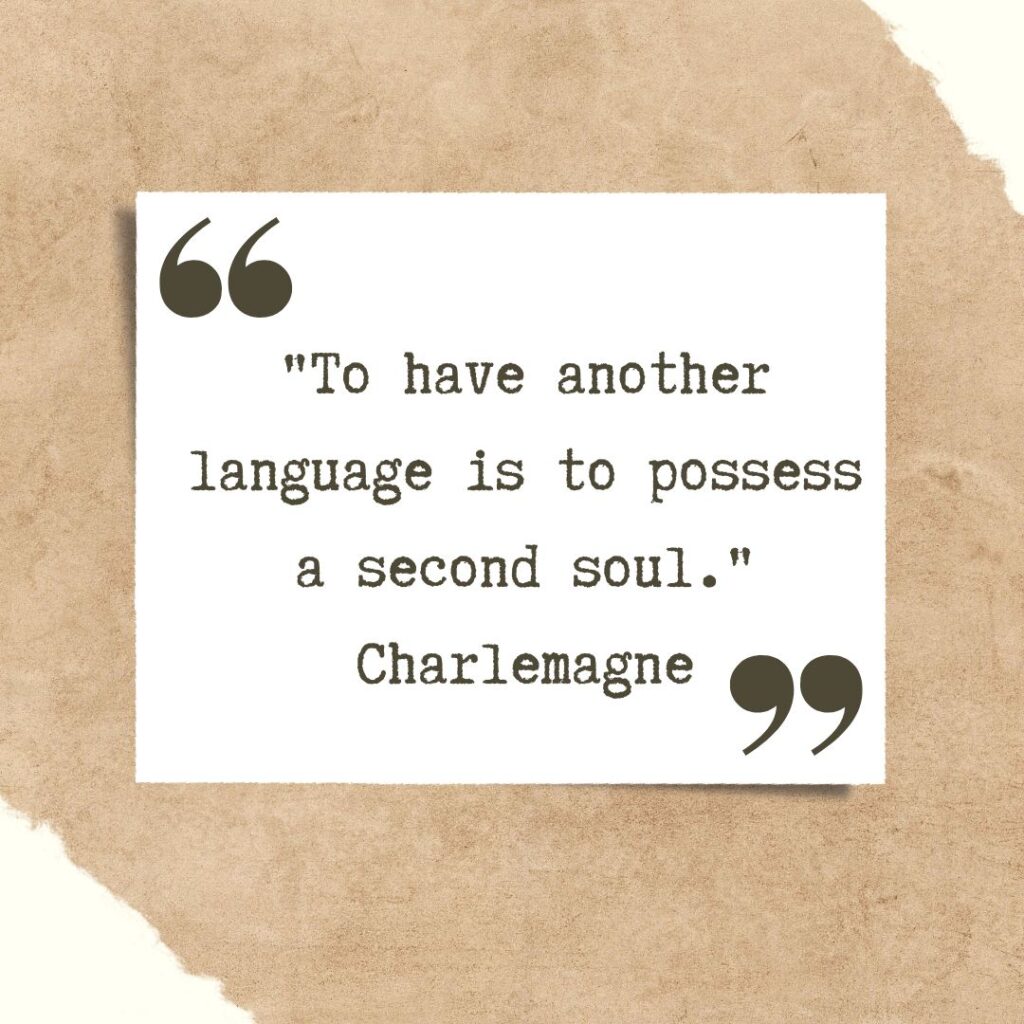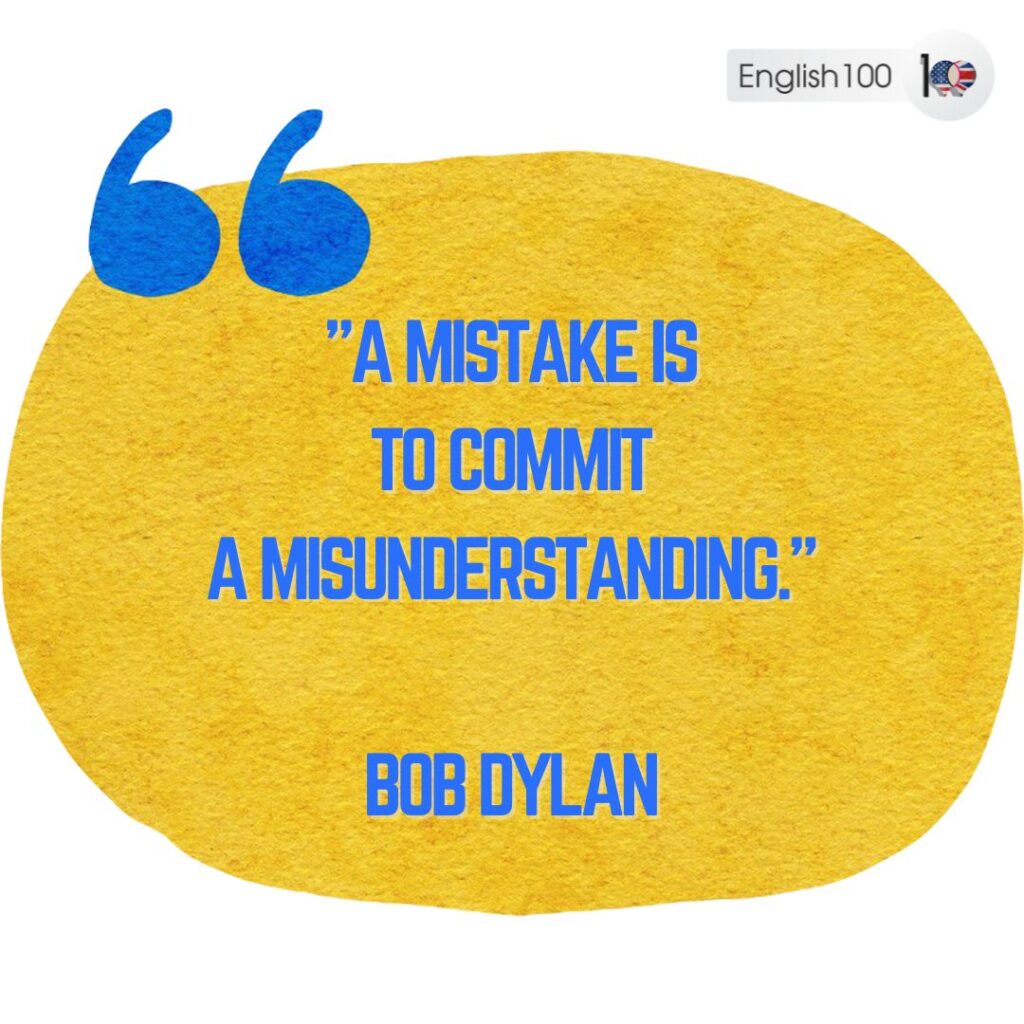Learning a new language can be a daunting task, especially if you’re trying to do it in an English-speaking country. But don’t worry; there’s no need to feel overwhelmed. In fact, many great thinkers and writers throughout history have shared their wisdom on the subject of language learning and they used quotation on language in their writing.
In this blog post, we’ll share with you 10 insightful quotations about language learning from some of the most renowned figures in literature and culture. From Mark Twain to Nelson Mandela, these quotes will inspire you to keep working on your English language skills and remind you that the journey is just as important as the destination. So grab a cup of tea, sit back, and let’s get inspired!
Quotation on language:
1. “If you talk to a man in a language he understands, that goes to his head. If you talk to him in his own language, that goes to his heart.” Nelson Mandela
This quotation on language highlights the importance of understanding and communicating with others in their native language. Speaking someone’s language not only allows for better communication but also creates a deeper understanding and appreciation for their culture and identity.
In today’s globalized world, being able to speak multiple languages is an increasingly valuable skill that can lead to greater opportunities personally and professionally. So let us remember Mandela’s words and strive to learn and communicate in different languages to connect with people on a deeper level.
2. “Language is the road map of a culture. It tells you where its people come from and where they are going.” Rita Mae Brown
Rita Mae Brown’s quotation on language, “Language is the road map of a culture. It tells you where its people come from and where they are going,” highlights the importance of language in understanding a society’s values and traditions. Language is not just about communication but also serves as a reflection of a culture’s history and evolution.
By examining a language’s grammar, vocabulary, idioms, and expressions, one can gain insight into the beliefs, customs, and social norms of a community. Moreover, language is constantly evolving as societies change and adapt to new circumstances.
Therefore, studying a language can provide us with a window into both the past and future trajectories of a culture.
3. “To have another language is to possess a second soul.” Charlemagne

This quotation on language by Charlemagne accurately captures the profound impact that learning a new language can have on an individual. When we learn a new language, we gain access to a whole new world of culture, literature, and ideas.
It opens up new avenues for communication and understanding with people from different backgrounds and experiences. Learning a new language also challenges our cognitive abilities, improving our memory, problem-solving skills, and overall brain function.
In essence, learning a new language is not just about acquiring new words or grammar rules; it’s about expanding our horizons and enriching our lives in countless ways.
4. “Language is not a genetic gift, it is a social gift. Learning a new language is becoming a member of the club -the community of speakers of that language.” Frank Smith
According to Frank Smith’s quotation on language, language is not something that we inherit genetically, but rather a social gift that we acquire through our interactions with others. When we learn a new language, we are essentially joining a community of people who share that language and its cultural nuances.
By doing so, we open ourselves up to new experiences and perspectives, and we gain a deeper understanding of the world around us. So if you’re considering learning a new language, remember that you’re not just acquiring a new skill – you’re becoming part of a vibrant and diverse community of speakers.
5. “Language is the blood of the soul into which thoughts run and out of which they grow.” Oliver Wendell Holmes Sr
Oliver Wendell Holmes Sr.’s quotation on language beautifully captures the essence of how language impacts our thoughts and emotions. Language is not just a tool for communication; it is the very essence of our being.
Our thoughts, emotions, and experiences are all expressed through language, allowing us to connect with others on a deeper level. As we learn new languages and become more proficient in them, we open ourselves up to new ways of thinking and experiencing the world around us.
In this sense, language truly is the blood of the soul into which thoughts run and out of which they grow.
6. “One language sets you in a corridor for life. Two languages open every door along the way.” Frank Smith
In this quotation on language, we will know that there are countless benefits to being bilingual or multilingual. Not only does it allow you to communicate with a wider range of people, but also it can expand your cultural understanding and help you navigate different social situations with ease.
When you speak multiple languages, you not only have access to new ideas and perspectives, but also you have the ability to forge deeper connections with people from around the world. Learning a new language can be challenging, but the rewards are well worth the effort.
So why settle for just one language when you can open up a whole new world by learning another?
7. “Without translation, I would be limited to the borders of my own country. The translator is my most important ally. He introduces me to the world.” Italo Calvino
Italo Calvino, the renowned Italian writer, once said in a quotation on language that without translation, he would be limited to the borders of his own country. For writers and readers alike, translation is the key to unlocking new worlds and discovering different perspectives.
Translators are not just language experts; they are cultural ambassadors who bridge gaps between countries and people. They have the power to introduce us to new ideas, challenge our assumptions, and broaden our horizons.
Without translators, we would miss out on some of the most compelling and thought-provoking literature from around the world. So let’s raise a glass to our most important ally: the translator.”
8. “Language is the means of getting an idea from my brain into yours without surgery.” Mark Amidon
Mark Amidon’s quotation on language perfectly captures the essence of language. It is a tool that allows us to communicate our thoughts and ideas with one another in a way that is both efficient and effective.
Without language, we would be unable to express ourselves or understand others. Language has evolved over time and has taken on many forms, from spoken words to written text to sign language. Regardless of the form it takes, language remains an essential part of human communication.
In short, language is the bridge that connects us all together, allowing us to understand each other’s thoughts and ideas without the need for surgery!
9. “A mistake is to commit a misunderstanding.” Bob Dylan

Bob Dylan’s quotation on language, “A mistake is to commit a misunderstanding” highlights the importance of understanding the root cause of errors. Mistakes are often viewed in a negative light, but Dylan’s quote reminds us that they can also be valuable learning opportunities.
By committing a misunderstanding, we have an opportunity to learn and gain a deeper understanding of the situation at hand. This can help us avoid making similar mistakes in the future and enable us to grow both personally and professionally.
Dylan’s words serve as a reminder that mistakes are not always failures, but rather opportunities for growth and development.
10. “Learning is a treasure that will follow its owner everywhere.” Chinese Proverb
This quotation on language, “Learning is a treasure that will follow its owner everywhere,” speaks to the everlasting value of education.
Unlike material possessions that can be lost or stolen, knowledge and skills gained through learning are something that no one can take away from you. Learning opens doors to new opportunities and experiences, allowing individuals to grow both personally and professionally.
The treasure of learning is priceless and will continue to benefit its owner throughout their entire life journey.
Some FAQs:
1. Why is the English language so important?
The English language is universally recognized as the global language of communication, business, and technology. It is spoken by more than 1.5 billion people worldwide, making it the most widely spoken language in the world.
2. What is language and learning?
Language is a system of communication that allows people to express ideas, thoughts, and feelings through spoken or written words. Language learning can take place in many different contexts, such as formal classroom settings, immersion programs, or self-directed study.
3. Why are languages important quotes?
Because quotation on language highlights how languages can expand our minds, connect us with other cultures, and open up new opportunities and perspectives. Whether we are learning a new language for personal or professional reasons, it can enrich our lives in countless ways and help us better understand the world around us.
4. What is a quotation on language?
The powerful quotation on language is “Language is power, in ways more literal than most people think. When we speak, we exercise the power of language to transform reality.” Julie Sedivy
In summary, language learning from quotation on language is an important skill that can help you connect with other people, understand the world around you, and grow professionally and personally. Quotes on language are a great way to remind us of the importance of language learning and its potential benefits.
References:
